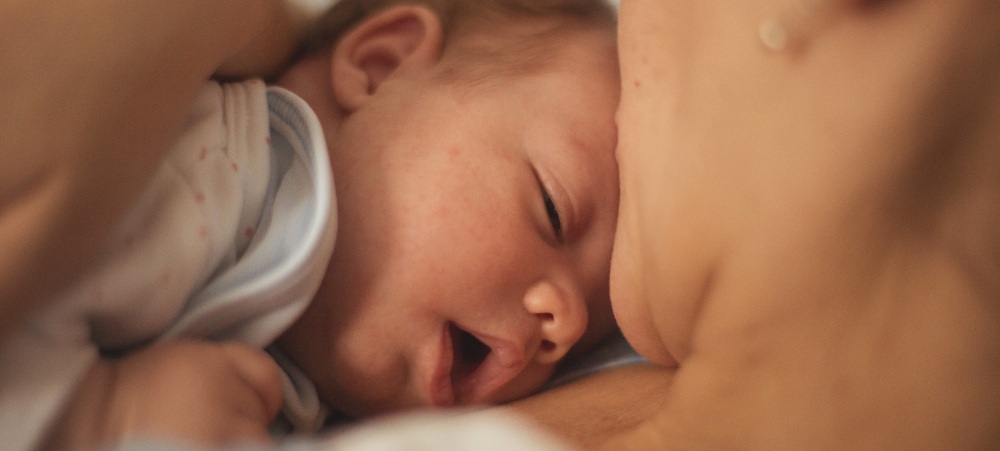The following information is to be used as a guide to and at the discretion of the end-user and should not replace a doctor’s opinion.
Believe it or not your baby will learn a lot in their first year of life. One way you can help them learn is to provide stimulation for them in different forms. This can be done in a variety of ways such as stimulating their vision and hearing or through touch and movement. Remember to spend some time every day working to help your baby explore the world around them.
Stimulating your baby’s vision
The following information is to be used as a guide to and at the discretion of the end-user and should not replace a doctor’s opinion.
Make eye contact with your baby during times when their eyes are open. Look them right in the eye. They recognize faces very early in life, especially yours! This helps them develop their memory. Use a mirror to let your baby stare at his or herself. They will enjoy looking at “another” baby and watching the movements it makes.
Stick out your tongue for your baby or make funny faces. Starting at 2 days old newborns can begin to mimic simple facial movements as they begin to develop problem solving skills. Hold up two pictures for your baby to look at. They should be similar, but with some sort of difference between the two – maybe one has a house and the other doesn’t.
Even young babies will look back and forth between the two to try and figure out the difference between them. This can help them develop letter recognition and reading skills later on.
Stimulating your baby with laughing and singing
The following information is to be used as a guide to and at the discretion of the end-user and should not replace a doctor’s opinion.
Find ways to get your baby laughing. This can be through methods like gentle tickling, blowing on their arms and tummy, or making funny faces.
As they get older you can joke around more too. Laughter is great for babies! Sing songs to your baby.
Learn as many as you can or make up your own words to songs you already know. Play music to your baby. This can be Bach or Mozart or even the Beatles.
Learning music rhythms may help them learn math skills later on. Talk away. In other words, have a silly, fun conversation with your baby.
Chat away and pause at places where your baby would speak in the conversation. As your baby grows, they will learn to start chatting to fill in the spaces you leave.
Be sure to make eye contact and smile a lot! Play peek-a-boo, it’s great for getting babies to giggle and laugh – it also teaches them that objects can disappear and then come back.
Physical activities for your baby
The following information is to be used as a guide to and at the discretion of the end-user and should not replace a doctor’s opinion.
Turn yourself into a playground by lying on the floor and letting your baby crawl all over you. This will help boost their problem-solving skills and coordination.
Teach them to move to music.
You can teach them to do the twist, twist and shout or even twirl like a ballerina. This helps them develop skills like balance and coordination as well as a sense of rhythm.
Create an obstacle course by laying toys, boxes or sofa cushions on the floor and then show your baby how to crawl over and around or under the items. This helps with problem-solving, strength and coordination.
Play pick-up by allowing them to drop toys or pieces of wadded up paper off their highchair into a bucket or other safe container. This helps them learn and explore the laws of gravity.
Newborn hearing
The following information is to be used as a guide to and at the discretion of the end-user and should not replace a doctor’s opinion.
Newborns can hear immediately upon birth and are able to distinguish their mother’s voice above all else. If your baby does not seem to react to your voice or does not startle with a loud noise, be sure to tell your paediatrician.
For 2025 we have a renewed Female Health Programme:In collaboration with CareWorks, it’s accessible to all female members aged 18 and above, with an emphasis on preventative care and early detection of female-specific health issues. In addition, we have an enhanced Maternity Programme to support expecting mothers. This includes early identification of and weekly engagement for high-risk pregnancies, post-childbirth care and associated mental health follow-up calls for new mums, given the prevalence of pre and postnatal depression. Also, milestone reminders for children under 3 and cover for antenatal vitamins through savings, day-to-day benefits or the Benefit Booster
Bonitas Medical Fund
0860 002 108
View Website: www.bonitas.co.za
- Premature birth – what to expect - November 21, 2025
- Why should I breastfeed my baby, and what if this is not an option? - November 14, 2025
- Why medical aids must go beyond medicine in managing diabetes - November 13, 2025





